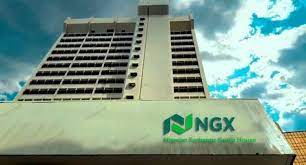
The gross written premiums of eight insurance firms rose by 22.43 per cent year-on-year to N367.66bn in 2023 compared to N300.31bn in the previous year.
According to an analysis of their annual reports filed with the Nigerian Exchange Limited, their profits also appreciated by 177.57 per cent to N68.94bn from N24.83bn.
Earlier this year, the National Insurance Commission announced that the industry’s premium stood at N1.003tn in 2023, representing about 27 per cent growth compared to N790bn in 2022.
The commission in a statement titled “Market Performance At A Glance-Q4 -2023” released by the Statistics Department Directorate of Research, Statistics and Publications indicated that at the end of 2023, the insurance sector achieved its lofty goal of generating N1tn in premium income, a target set 14 years ago.
A breakdown of premiums showed that the non-life business accounted for 61.3 per cent of all premiums written during the year while the life segment contributed 38.7 per cent, valued at N388.1bn.
The insurance firms whose financials were reviewed include AIICO, Sovereign Trust Insurance, NEM Insurance, Veritas Kapital, Axa Mansard, Prestige Assurance, International Energy Insurance, and Custodian Investment.
A closer look at the results showed that AIICO had the highest gross written premiums at N110.12bn higher than N88.28bn in 2022, a 25 per cent increase.
Similarly, its profit rose by 133 per cent to N12.02bn from N5.17bn.
Sovereign Trust Insurance’s revenue stood at N19.32bn, 23 per cent higher than N15.70bn in the previous year.
However, its post-tax profit declined by eight per cent to N1.27bn, on the back of higher insurance service and reinsurance contract expenses.
NEM Insurance received about N62.71bn as a premium from its eight product lines, higher than the N33.37bn it got in the previous year and its profit jumped by 140 per cent to N12.96bn from N5.40bn in the previous year.
Veritas Kapital saw its gross premiums rise by 61.94 per cent to N7.56bn from N4.67bn in 2022, as profit soared 286 per cent year-on-year to N2.75bn.
Axa Mansard’s insurance revenue stood at N82.75bn in 2023 from N69.22bn in the prior period, while its post-tax profit rose to N12.05bn from N2.53 in 2022.
The firm’s claims paid for the year increased to N39.69bn from N31.42bn in the previous year.
Prestige Assurance in the year under review saw its gross premium rise to N14.88bn from N12.44bn in 2022 and its profit after tax hit N1.31bn from N502.26m in the previous year.
International Energy Insurance Plc’s premium jumped by 481.67 per cent to N5.13bn in one year, driven by direct premiums from one segment of its business, motor insurance, which stood at N4.81bn.
The company’s post-tax stood at N5.58bn higher than N232.90m in the previous year, while the claims paid during the period also went up to N740m from N181.10m in 2022.
Custodian Investment, which is a holding company with subsidiaries, including Custodian and Allied Insurance Limited, Custodian Life Assurance Limited, CrusaderSterling Pensions Limited, Custodian Trustees Limited and UPDC Plc, recorded the highest profit of N21.01bn higher than N8.89bn in the previous year.
Its gross premium for 2023 stood at N65.19bn, about 14 per cent lower than N75.75bn of last year.
Pan-African rating company, Agusto & Co, in its report on the insurance sector showed that the sector maintained its double-digit growth trend in 2023 as the estimated gross premium income exceeded the N1tn mark driven by strong regulatory support and premium rate adjustments on some policies.
Speaking on the report, the Head of Financial Institutions Ratings at Agusto & Co, Ayokunle Olubunmi, said, “What we say last year was aggressive risk repricing. What we saw previously was that the industry had not been pricing the risks appropriately. Also, we have seen an upsurge in the valuation of assets, which would translate to a higher value of insured assets and that drove into the premium.
“We saw about 50 per cent devaluation of the naira last year. For the premium on the energy business and the aviation business, which was predominately denominated in dollars, that bloated the gross premium income. Also, micro insurance and takaful insurance supported the industry.”
In an interview with CNBC Africa, Olubunmi added, “During this period, we saw that NAICOM engaged in an awareness campaign, going into states with low insurance penetration and trying to sensitise them to the importance of insurance.”





